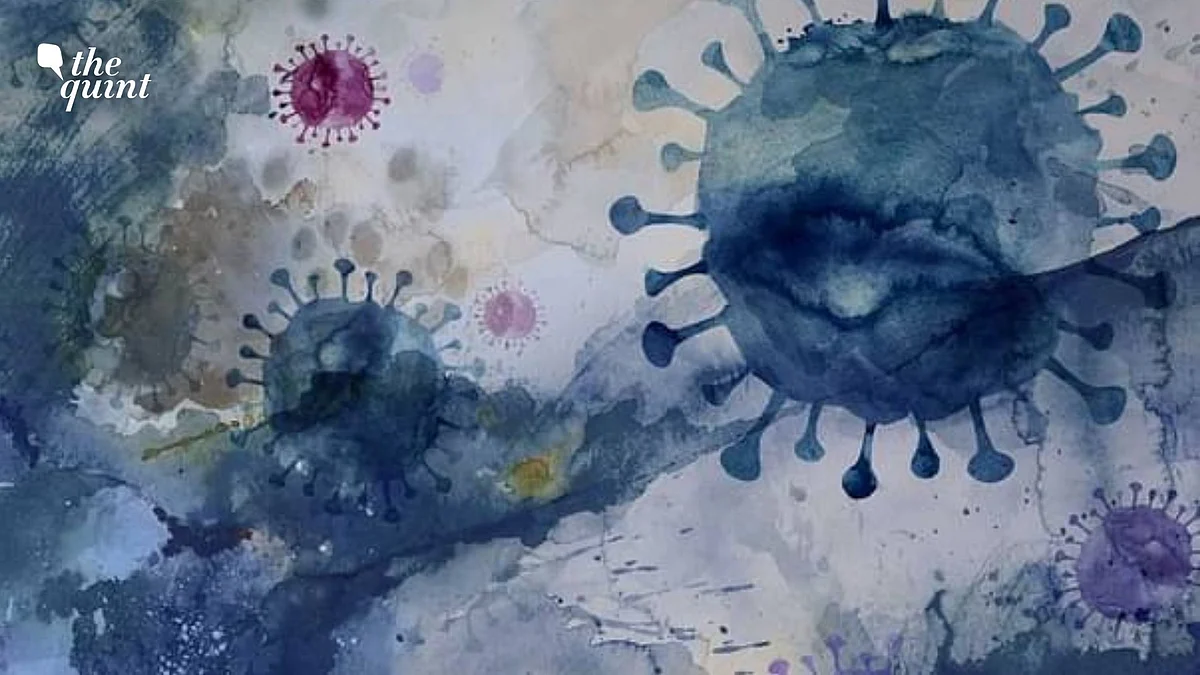COVID: No Omicron Case in India So Far, Says Health Min; Japan Confirms 1st Case
Catch all the latest COVID-19 updates here.

advertisement
No case of COVID-19 variant omicron has been reported in India so far, Health Minister Dr Mansukh Mandaviya said in Rajya Sabha during Question Hour on Tuesday, 30 November.
The B.1.1.529 strain of COVID-19, or 'Omicron' was first reported in South Africa on 24 November 2021.
Meanwhile, Japan has confirmed its first Omicron case, according to a report by AP on Tuesday.
Amid concerns over the emergence of the new variant, a 32-year-old resident of Mumbai's Dombivli, who arrived from South Africa via Delhi on 24 November, tested COVID-positive upon arrival. However, the Mayor of Mumbai on Tuesday said that there is no case of Omicron in the city yet.
According to World Health Organization, it is not yet clear whether 'Omicron' is more transmissible or severe compared to Delta
The Omicron variant is likely to spread internationally, posing a "very high" global risk where COVID-19 surges could have "severe consequences", WHO said on Monday, 29 November
All international travellers will be mandated to submit 14 days' travel details and upload a negative RT-PCR test report on the Air Suvidha portal before crossing the national borders from Wednesday, 1 December
Travellers from “at-risk” countries will have to go undergo a mandatory 7-day quarantine, even if they test negative for the virus
So far, the variant has been detected in at least 12 countries
(At The Quint, we question everything. Play an active role in shaping our journalism by becoming a member today.)
'Low Hospitalisation, No Deaths Related to Omicron': South Africa
According to South African health authorities, extremely low hospitalisation has been linked to the Omicron COVID-19 variant, sources told The Indian Express.
While they are seeing “highly transmissibility", patients are mostly experiencing mild illness with extreme fatigue and throat irritation.
No Case of Omicron in Mumbai: Mayor
Mumbai Mayor Kishori Pednekar on Tuesday said that as per authorities, every passenger arriving into the city is being tested and being sent to quarantine and "so far, there's no case of Omicron in Mumbai," ANI reported.
Resident of Chandigarh Tests Positive for COVID After Return From South Africa
A 39-year-old male resident of Chandigarh’s Sector 36 has tested positive for COVID-19 after his return from South Africa, although his RT-PCR report was negative on arrival, reports The Indian Express.
He was quarantined at home on his arrival in Chandigarh and as per protocol, was tested again on Monday, after which the Health Department confirmed that he has tested positive.
One of his family members and a domestic help also tested positive.
The variant has not been ascertained yet.
Mild Symptoms, Get Better on Their Own: Doctor Who Alerted Scientists About Omicron
The new variant Omicron does not have the same symptoms as seen in the Delta variant, the doctor who alerted government scientists has told NDTV.
Mild symptoms like fatigue and body ache have been reported but there are no complaints of stuffy noise and patients who contracted the new strain don't seem to have high temperatures, she added.
Dr Angelique Coetzee, the chairperson of the South African Medical Association, said that people shouldn't panic and see a doctor even if they suspect they have contracted Omicron. "These symptoms get better on their own," she said.
CM Kejriwal Urges PM Modi to Stop International Flights
India should not delay curbs on international flights, Delhi Chief Minister Arvind Kejriwal told Prime Minister Narendra Modi amid the scare over COVID variant Omicron.
In a tweet in Hindi, Kejriwal, wrote: "Several countries have restricted flights from Omicron-affected nations. Why are we delaying? In the first wave too, we had delayed the ban on flights. Most international flights land in Delhi....and the city gets affected the most. PM Sahib, please stop the flights."
First Omicron Case in Japan
Japan has confirmed its first case of the new omicron COVID-19 variant, a visitor who recently arrived from Namibia, an official said, according to a report by AP.
No Omicron Case Reported in India So Far:
No case of COVID-19 variant omicron has been reported in India so far, Health Minister Dr Mansukh Mandaviya said in Rajya Sabha during Question Hour on Tuesday, 30 November.
Omicron: Kejriwal Announces Action Plan for Delhi
Delhi chief minister Arvind Kejriwal addressed the media on action plan and preparedness of the health infrastructure in the backdrop of the Omicron variant of COVID-19.
"We have prepared 30,000 oxygen beds, out of which 10,000 are ICU beds. Around 6,800 more ICU beds are under construction," he said
"There are 32 types of medicines that are used during the treatment of COVID-19, for which a buffer stock of two months is being ordered," he added.
Kejriwal further said that all hospitals in Delhi put together have around 750 MT of oxygen capacity and that additional storage capacity of 442 MT is currently being prepared.